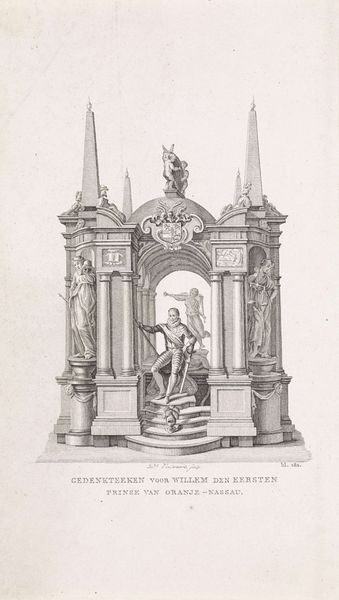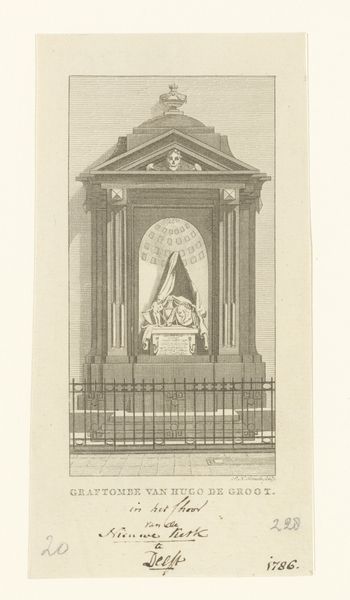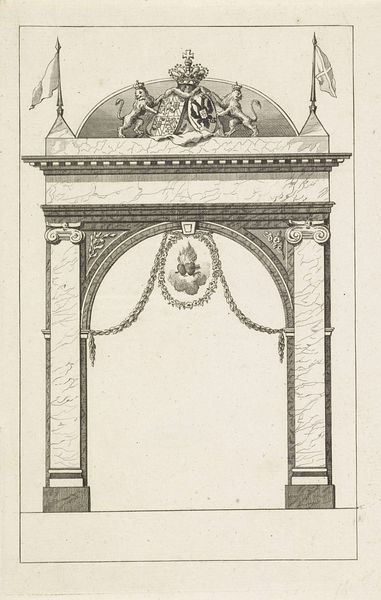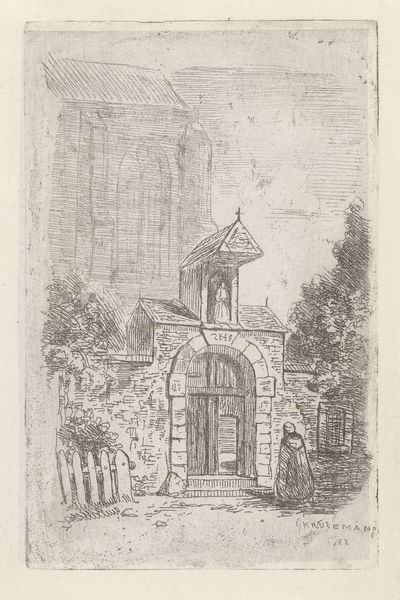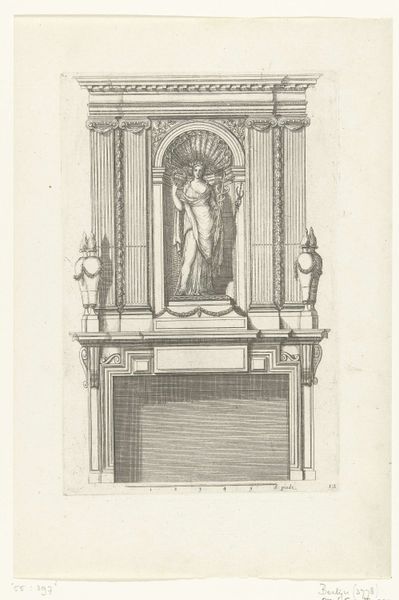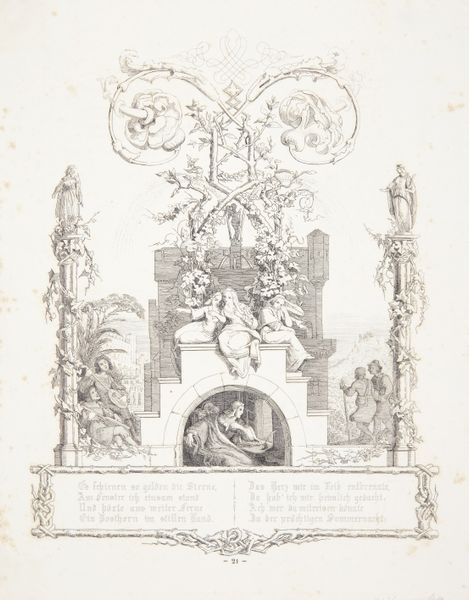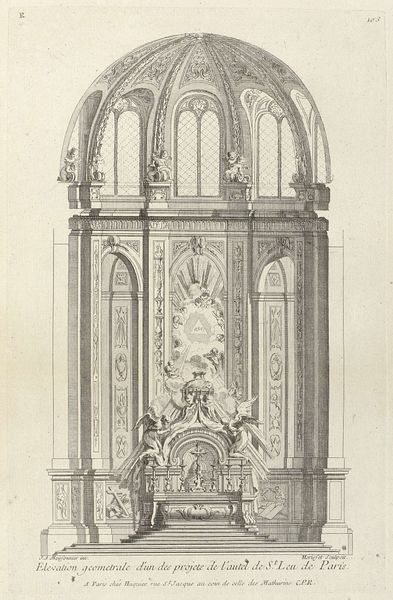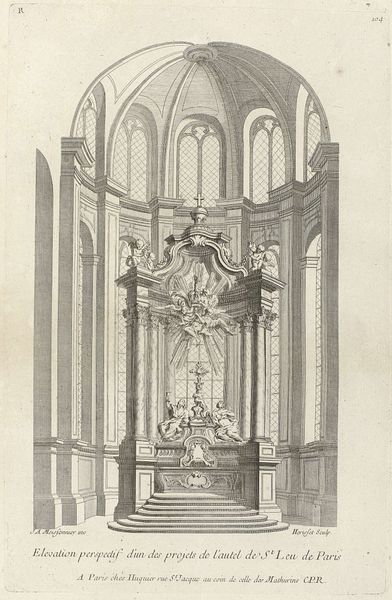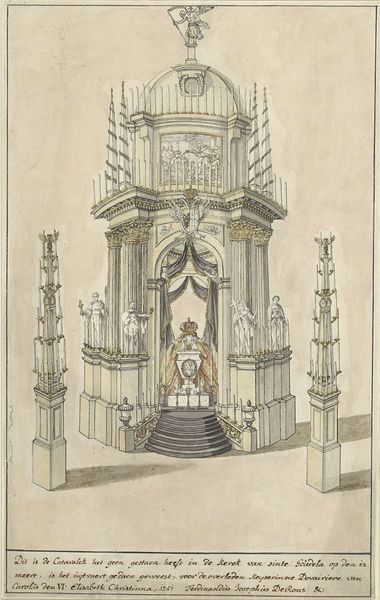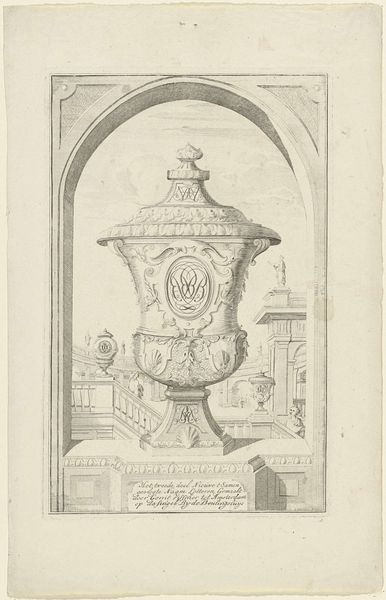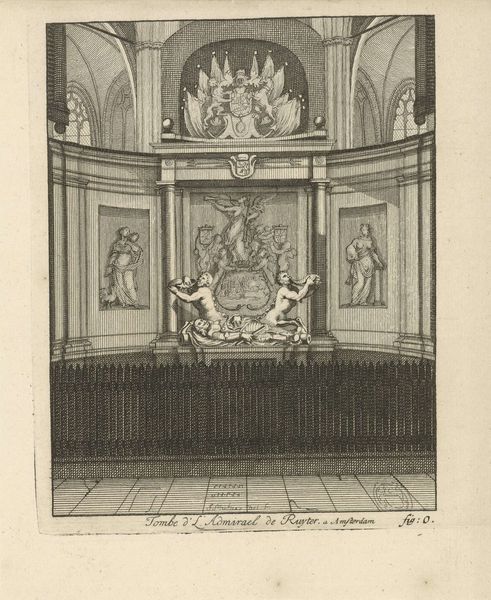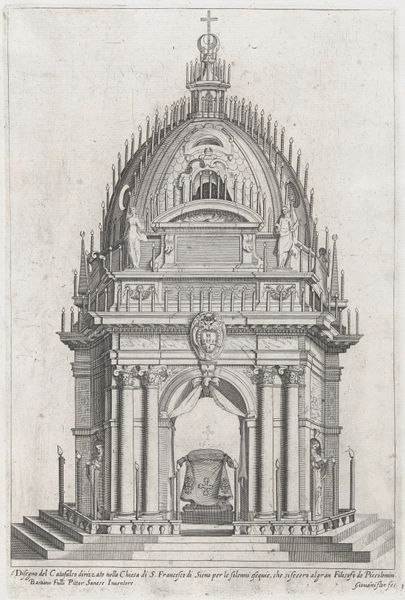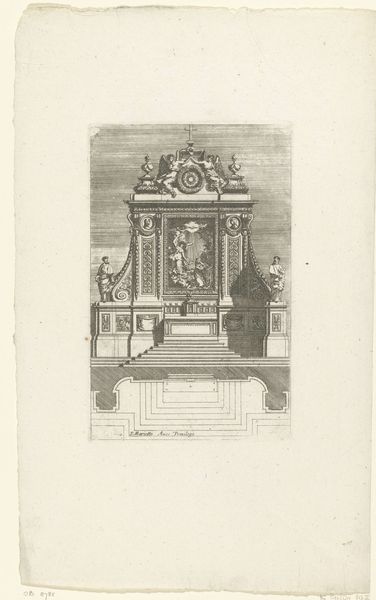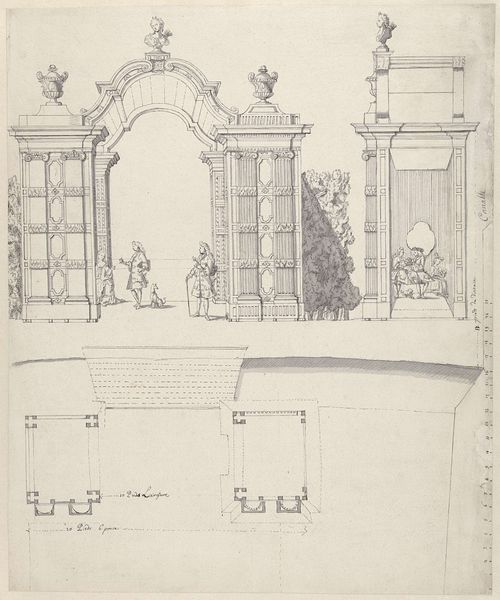
Graftombe van Willem I, prins van Oranje, in de Nieuwe Kerk te Delft 1836 - 1912
0:00
0:00
isaacweissenbruch
Rijksmuseum
Dimensions: height 108 mm, width 88 mm
Copyright: Rijks Museum: Open Domain
Isaac Weissenbruch made this print of Willem I’s tomb in Delft, using etching, a process dependent on the controlled degradation of a metal plate. The original design and carving of the tomb itself would have been deeply collaborative, involving many hands, from quarrymen extracting the stone to sculptors articulating the figures. Weissenbruch's print flattens all that effort into lines. Through the etched lines, we lose the weight and presence of the original. Instead, we get a kind of reportage, using a printing technology that, by the 19th century, allowed images to be widely disseminated. The image here, via the etching, becomes more of a commodity, reflecting the intersection of art, labor, and mass production. This reproductive process democratizes the image of the tomb, making it accessible beyond the physical confines of the Nieuwe Kerk. It's a reminder that every artwork is not just an object, but a node in a network of making, seeing, and distributing.
Comments
No comments
Be the first to comment and join the conversation on the ultimate creative platform.
